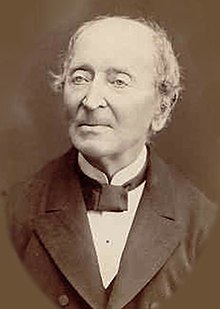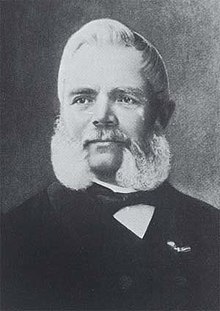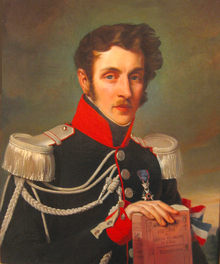Post by Bonobo on Jan 30, 2013 19:34:49 GMT 1
Why such a thread? I see how Poland lacks truly intelligent people, especially those most brilliant ones. Yes, Poles are generally clever and good at many things but the real progress is made by geniuses with a vision, Like Steve Jobs, for example. Such people are scarce in contemporary Poland.
Polish intelligentsia either perished in mass executions and massacres or left Poland for various reasons and never came back. Instead in Poland, they created made their art, inventions, literature in other countries.
I thought of starting from mid 19 century, the time when the intelligentsia class came to being in partitioned Poland.
In the Polish language the term was popularised in a sense close to the present one by Polish philosopher Karol Libelt, and became widespread in Polish science after the publication of his O mi³o¶ci ojczyzny (On Love of the Fatherland) in 1844, in which he defines "inteligencja" to be those well-educated members of the population who undertake to lead the people as scholars, teachers, clergy, engineers, and who guide for the reason of their higher enlightenment.
After the Partitions of Poland, Polish society remained divided into nobles—the surprisingly numerous class known as Szlachta — and peasants. The political and cultural influence of the cities was small in relation to Western Europe, though this influence was growing. The need for educated specialists created a new class of educated people: hired professionals, such as clerks, physicians, and lawyers. They were recruited mainly from among former nobles, but increasingly from the urbanized classes.
The Polish intelligentsia specifically was considered the backbone of the modern Polish nation. Members of the intelligentsia were well aware of their social status and of their duties, of which working for the country and patriotism were considered the most important.
First loss was caused by November Uprising, 1831 which provoked the phenomenon known in our history as Great Emmigration en.wikipedia.org/wiki/Great_Emigration. About 50.000 Polish soldiers who took part in the Uprising left the country in fear of repressions.
Among them were
Ignacy Domeyko or Domejko (Lithuanian: Ignotas Domeika; Spanish: Ignacio Domeyko; Belarusian: Ігнат Дамейка) (July 31, 1802 – January 23, 1889, Santiago de Chile) was a 19th-century Polish geologist, mineralogist and educator. Domeyko spent most of his life (and died) in his adopted country, Chile.
After a youth passed in the partitioned Polish-Lithuanian lands, Domeyko participated in the November 1830 Uprising against the Russian Empire. Upon its suppression, he was forced into exile and spent part of his life in France before eventually settling in Chile, of which he became a citizen. He lived some 50 years in Chile and made major contributions to the study of that country's geography, geology and mineralogy. His observations on the circumstances of poverty-stricken miners and of their wealthy exploiters had a profound influence on those who would go on to shape Chile's labor movement.[1][2]

en.wikipedia.org/wiki/Ignacy_Domeyko
Emil Korytko (7 September 1813 – 31 January 1839) was a Polish ethnographer, philologist and translator.[1]
Born in the village of ¯ewa¿a near Zaleszczyki in Austrian Galicia (now Zelenyy Gay in the Ternopil Oblast in Ukraine), he studied philosophy and philology at the University of Lwow, where he became acquainted with the Slovene philologist Matija Èop who taught at the University.
He participated in the November Uprising. In 1837, he was arrested by the Austrian authorities in Lwow on accusations of having participated in underground subversive activities, and sent into confinement to Ljubljana, Duchy of Carniola (now in Slovenia), together with Bogus³aw Horodyñski. In Ljubljana, he became a close collaborator of the Slovene national Romantic circle of Matija Èop. Korytko studied Slovene folk poetry from Carniola, which he published in five volumes. He became a personal friend of the Slovene poet France Pre¹eren,[2] and helped him translate several poems by Adam Mickiewicz into German. He also translated some of Pre¹eren's poems into German.[3]
Antoni Norbert Patek (French: Antoine Norbert de Patek) (June 14, 1811 – March 1, 1877), is a Polish pioneer in watchmaking and a creator of Patek Philippe & Co. one of the most famous watchmaker companies.
Antoni Patek was born in 1811 (according to some sources 1812) in Piaski Luterskie near Lublin, Poland to Anna née Piasecka and Joachim Patek of Prawdzic coat of arms. [1]
At the age of 10, Patek moved with his parents to Warsaw. Patek's father died on April 7, 1828 in Warsaw.[2]
On March 1, 1828, 16 year old Patek joined the Polish 1st Mounted Rifles Regiment. He fought in the November Uprising during which he was wounded twice. On February 27, 1831 for his heroic attitude Patek was promoted the second lieutenant of the "1st August" brigade, and on October 3 of the same year decorated with Virtuti Militari Golden Cross. After the downfall of the uprising – like many other officers and soldiers of Polish Army – he had to emigrate.[3]

en.wikipedia.org/wiki/Antoni_Patek
Sir Kazimierz Stanislaus Gzowski, KCMG (March 5, 1813 – August 24, 1898), was an engineer who served as acting Lieutenant Governor of Ontario from 1896 to 1897.[1]
Gzowski was born in Saint Petersburg to a noble Polish father who served with the Russian military.
He emigrated with his family to the United States after the Polish revolt against Russia in 1830. He knew no English, but began to study law and was admitted to practice. His father was an engineer, and as this became his primary interest, Kazimierz became involved in railway construction in the United States. Eventually he was hired as an engineer to help in the construction of the New York and Erie Railway.
In 1841 he moved to Canada to work on the Welland Canal, and also helped finish the building of Yonge Street and other projects, for the Department of Public Works in southern Ontario. He settled in London.

en.wikipedia.org/wiki/Casimir_Gzowski
Leonard Borejko Chod¼ko (1800–71) was a Polish historian, geographer, cartographer, publisher, archivist, and activist of Poland's post-November-1830-Uprising Great Emigration.
Chod¼ko was educated at the University of Vilnius, where he was a member of the Philomaths, a secret organization established in 1816 by Vilnius University students including Adam Mickiewicz, Tomasz Zan and Józef Je¿owski.[1]
From 1826 he lived in Paris. During France's July 1830 Revolution, he served as aide-de-camp to General La Fayette.

Joachim Lelewel (22 March 1786 – 29 May 1861) was a Polish historian and politician, from a Polonized branch of a Prussian family.His grandparents were Heinrich Löllhöffel von Löwensprung (1705–63) and Constance Jauch (1722–1802), who later polonized her name to Lelewel.
Born in Warsaw, Lelewel was educated at the Imperial University of Vilna, where in 1814 he became a lecturer in history, with a brief sojourn at Warsaw, 1818–1821, where he joined the Warsaw Society of Friends of Learning. His lectures on Polish history created great enthusiasm, as shown in some lines addressed to him by Adam Mickiewicz that led to Lelewel's removal by the Russians in 1824.
He joined the November 1830 Uprising with more enthusiasm than energy, though Tsar Nicholas I identified him as one of the most dangerous rebels. On the suppression of the rebellion, Lelewel made his way in disguise to Germany and subsequently reached Paris in 1831. The government of Louis Philippe ordered him to quit French territory in 1833 at the request of the Russian ambassador. The cause of the expulsion is said to have been his writing of revolutionary proclamations. He went to Brussels, where for nearly thirty years he earned a scanty livelihood by his writings.
In 1847, he, together with Karl Marx and Friedrich Engels, became a founding member and Vizepräses (vice president) of the Demokratische Gesellschaft zur Einigung und Verbrüderung aller Völker (Democratic Society for Unity and Brotherhood of All Peoples), seated in Brussels. The anarchist Michail Bakunin was strongly influenced by him.

en.wikipedia.org/wiki/Joachim_Lelewel
Polish intelligentsia either perished in mass executions and massacres or left Poland for various reasons and never came back. Instead in Poland, they created made their art, inventions, literature in other countries.
I thought of starting from mid 19 century, the time when the intelligentsia class came to being in partitioned Poland.
In the Polish language the term was popularised in a sense close to the present one by Polish philosopher Karol Libelt, and became widespread in Polish science after the publication of his O mi³o¶ci ojczyzny (On Love of the Fatherland) in 1844, in which he defines "inteligencja" to be those well-educated members of the population who undertake to lead the people as scholars, teachers, clergy, engineers, and who guide for the reason of their higher enlightenment.
After the Partitions of Poland, Polish society remained divided into nobles—the surprisingly numerous class known as Szlachta — and peasants. The political and cultural influence of the cities was small in relation to Western Europe, though this influence was growing. The need for educated specialists created a new class of educated people: hired professionals, such as clerks, physicians, and lawyers. They were recruited mainly from among former nobles, but increasingly from the urbanized classes.
The Polish intelligentsia specifically was considered the backbone of the modern Polish nation. Members of the intelligentsia were well aware of their social status and of their duties, of which working for the country and patriotism were considered the most important.
First loss was caused by November Uprising, 1831 which provoked the phenomenon known in our history as Great Emmigration en.wikipedia.org/wiki/Great_Emigration. About 50.000 Polish soldiers who took part in the Uprising left the country in fear of repressions.
Among them were
Ignacy Domeyko or Domejko (Lithuanian: Ignotas Domeika; Spanish: Ignacio Domeyko; Belarusian: Ігнат Дамейка) (July 31, 1802 – January 23, 1889, Santiago de Chile) was a 19th-century Polish geologist, mineralogist and educator. Domeyko spent most of his life (and died) in his adopted country, Chile.
After a youth passed in the partitioned Polish-Lithuanian lands, Domeyko participated in the November 1830 Uprising against the Russian Empire. Upon its suppression, he was forced into exile and spent part of his life in France before eventually settling in Chile, of which he became a citizen. He lived some 50 years in Chile and made major contributions to the study of that country's geography, geology and mineralogy. His observations on the circumstances of poverty-stricken miners and of their wealthy exploiters had a profound influence on those who would go on to shape Chile's labor movement.[1][2]

en.wikipedia.org/wiki/Ignacy_Domeyko
Emil Korytko (7 September 1813 – 31 January 1839) was a Polish ethnographer, philologist and translator.[1]
Born in the village of ¯ewa¿a near Zaleszczyki in Austrian Galicia (now Zelenyy Gay in the Ternopil Oblast in Ukraine), he studied philosophy and philology at the University of Lwow, where he became acquainted with the Slovene philologist Matija Èop who taught at the University.
He participated in the November Uprising. In 1837, he was arrested by the Austrian authorities in Lwow on accusations of having participated in underground subversive activities, and sent into confinement to Ljubljana, Duchy of Carniola (now in Slovenia), together with Bogus³aw Horodyñski. In Ljubljana, he became a close collaborator of the Slovene national Romantic circle of Matija Èop. Korytko studied Slovene folk poetry from Carniola, which he published in five volumes. He became a personal friend of the Slovene poet France Pre¹eren,[2] and helped him translate several poems by Adam Mickiewicz into German. He also translated some of Pre¹eren's poems into German.[3]
Antoni Norbert Patek (French: Antoine Norbert de Patek) (June 14, 1811 – March 1, 1877), is a Polish pioneer in watchmaking and a creator of Patek Philippe & Co. one of the most famous watchmaker companies.
Antoni Patek was born in 1811 (according to some sources 1812) in Piaski Luterskie near Lublin, Poland to Anna née Piasecka and Joachim Patek of Prawdzic coat of arms. [1]
At the age of 10, Patek moved with his parents to Warsaw. Patek's father died on April 7, 1828 in Warsaw.[2]
On March 1, 1828, 16 year old Patek joined the Polish 1st Mounted Rifles Regiment. He fought in the November Uprising during which he was wounded twice. On February 27, 1831 for his heroic attitude Patek was promoted the second lieutenant of the "1st August" brigade, and on October 3 of the same year decorated with Virtuti Militari Golden Cross. After the downfall of the uprising – like many other officers and soldiers of Polish Army – he had to emigrate.[3]

en.wikipedia.org/wiki/Antoni_Patek
Sir Kazimierz Stanislaus Gzowski, KCMG (March 5, 1813 – August 24, 1898), was an engineer who served as acting Lieutenant Governor of Ontario from 1896 to 1897.[1]
Gzowski was born in Saint Petersburg to a noble Polish father who served with the Russian military.
He emigrated with his family to the United States after the Polish revolt against Russia in 1830. He knew no English, but began to study law and was admitted to practice. His father was an engineer, and as this became his primary interest, Kazimierz became involved in railway construction in the United States. Eventually he was hired as an engineer to help in the construction of the New York and Erie Railway.
In 1841 he moved to Canada to work on the Welland Canal, and also helped finish the building of Yonge Street and other projects, for the Department of Public Works in southern Ontario. He settled in London.

en.wikipedia.org/wiki/Casimir_Gzowski
Leonard Borejko Chod¼ko (1800–71) was a Polish historian, geographer, cartographer, publisher, archivist, and activist of Poland's post-November-1830-Uprising Great Emigration.
Chod¼ko was educated at the University of Vilnius, where he was a member of the Philomaths, a secret organization established in 1816 by Vilnius University students including Adam Mickiewicz, Tomasz Zan and Józef Je¿owski.[1]
From 1826 he lived in Paris. During France's July 1830 Revolution, he served as aide-de-camp to General La Fayette.

Joachim Lelewel (22 March 1786 – 29 May 1861) was a Polish historian and politician, from a Polonized branch of a Prussian family.His grandparents were Heinrich Löllhöffel von Löwensprung (1705–63) and Constance Jauch (1722–1802), who later polonized her name to Lelewel.
Born in Warsaw, Lelewel was educated at the Imperial University of Vilna, where in 1814 he became a lecturer in history, with a brief sojourn at Warsaw, 1818–1821, where he joined the Warsaw Society of Friends of Learning. His lectures on Polish history created great enthusiasm, as shown in some lines addressed to him by Adam Mickiewicz that led to Lelewel's removal by the Russians in 1824.
He joined the November 1830 Uprising with more enthusiasm than energy, though Tsar Nicholas I identified him as one of the most dangerous rebels. On the suppression of the rebellion, Lelewel made his way in disguise to Germany and subsequently reached Paris in 1831. The government of Louis Philippe ordered him to quit French territory in 1833 at the request of the Russian ambassador. The cause of the expulsion is said to have been his writing of revolutionary proclamations. He went to Brussels, where for nearly thirty years he earned a scanty livelihood by his writings.
In 1847, he, together with Karl Marx and Friedrich Engels, became a founding member and Vizepräses (vice president) of the Demokratische Gesellschaft zur Einigung und Verbrüderung aller Völker (Democratic Society for Unity and Brotherhood of All Peoples), seated in Brussels. The anarchist Michail Bakunin was strongly influenced by him.

en.wikipedia.org/wiki/Joachim_Lelewel






